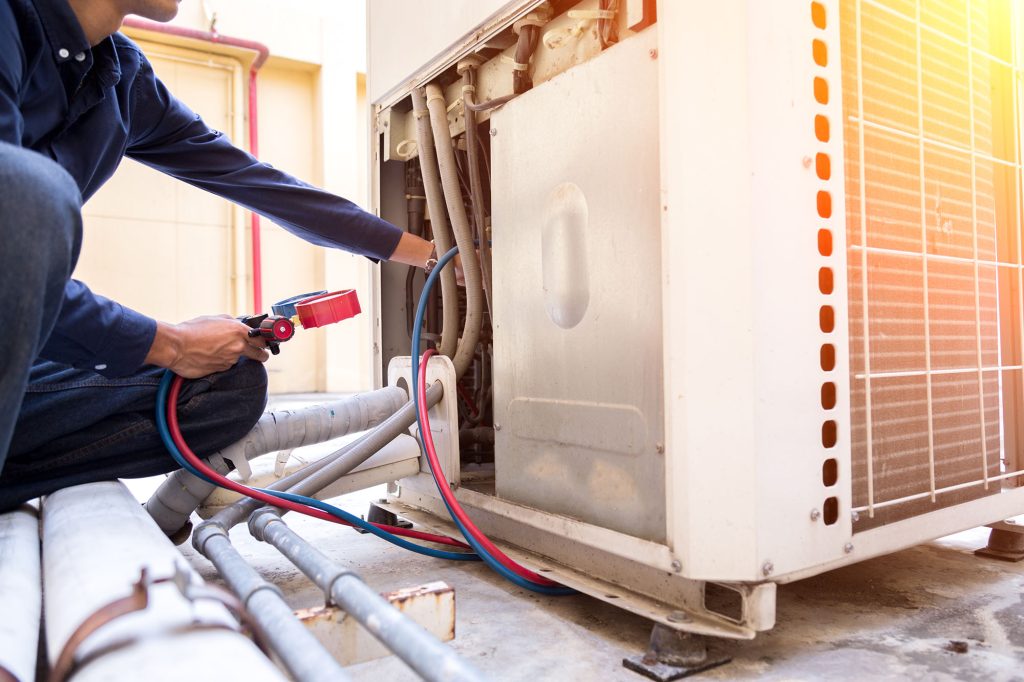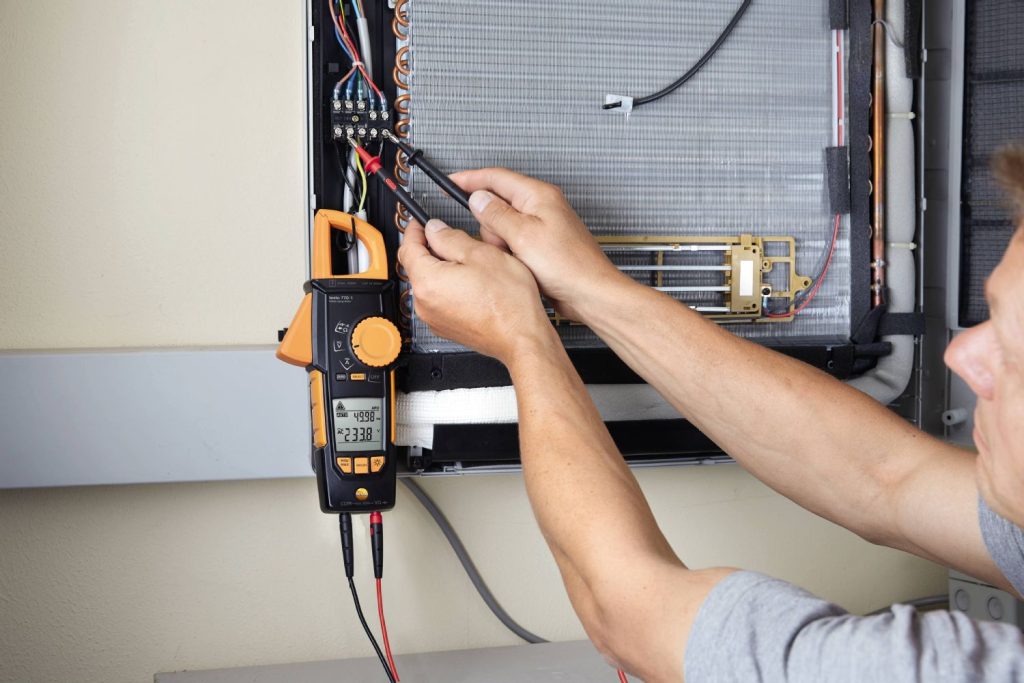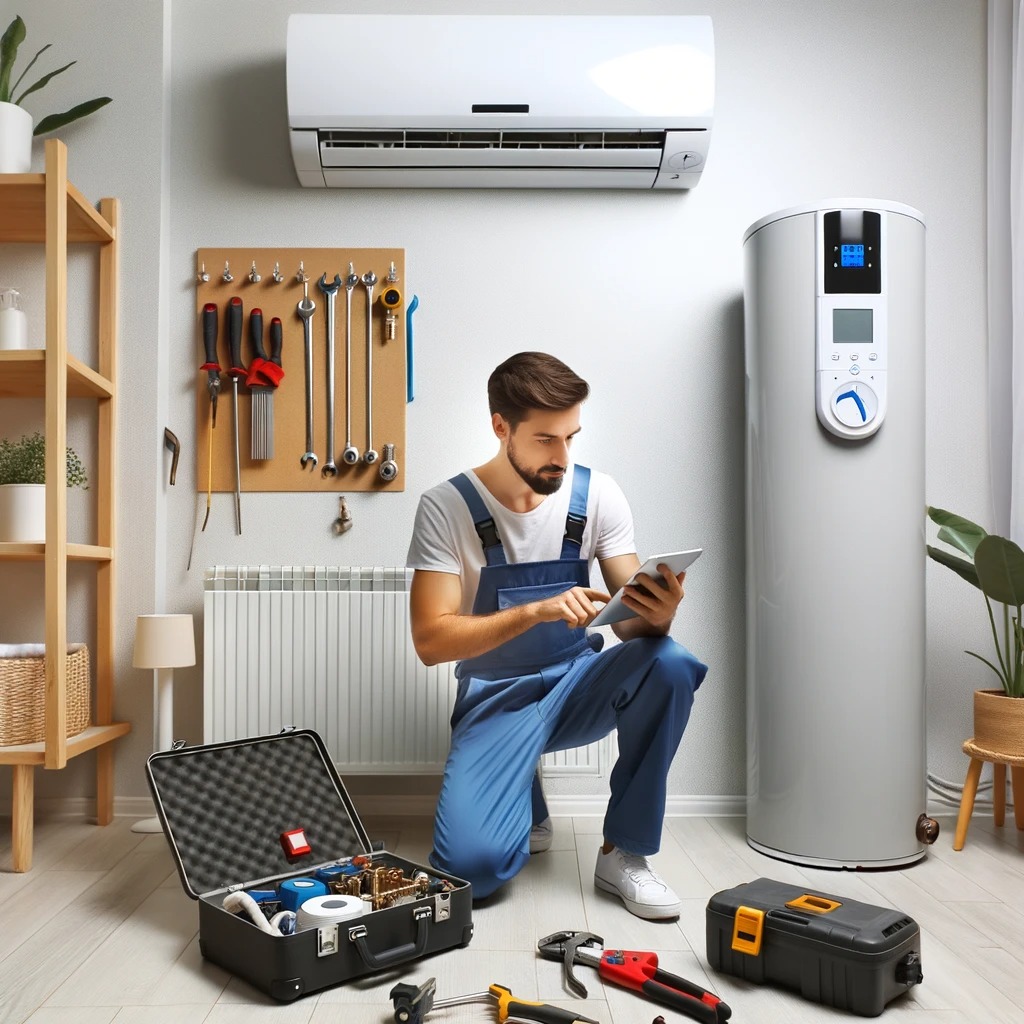Are you wondering, “What does HVAC maintenance include?” It’s a common question that many homeowners and business owners ask. HVAC maintenance is essential for ensuring your heating, ventilation, and air conditioning systems run efficiently and effectively.
In this blog, we’ll break down “what does HVAC maintenance include” and why it’s vital for your comfort and energy savings.

Understanding HVAC Maintenance
HVAC maintenance involves a series of tasks performed regularly to keep your heating and cooling systems in top condition.These tasks are designed to prevent breakdowns, extend the life of your equipment, and improve indoor air quality.
Why Is HVAC Maintenance Important?
- Energy Efficiency: Regular maintenance ensures your system runs efficiently saving you money on energy bills.
- Longevity: Proper maintenance extends the lifespan of your HVAC equipment.
- Comfort: A well-maintained system provides consistent temperatures and better air quality.
- Cost Savings: Preventative maintenance helps avoid costly repairs and replacements.
- Safety: Regular checks can identify potential hazards, ensuring your home business is safe.
What Does HVAC Maintenance Include?
If you’re asking, “What does HVAC maintenance include?” here’s a detailed look at the various components:
Inspection and Cleaning
One of the primary tasks in HVAC maintenance is inspecting and cleaning various parts of the system.
Air Filters: Replacing or cleaning air filters improves air quality and system efficiency.
Coils: Cleaning the evaporator and condenser coils helps the system cool more effectively.
Ductwork: Inspecting and cleaning ductwork ensures proper airflow and reduces contaminants.
System Testing
Testing various components is crucial to ensure everything is working correctly.
Thermostat: Checking and calibrating the thermostat ensures accurate temperature control.
Electrical Connections: Inspecting and tightening electrical connections prevents electrical hazards.
System Controls: Testing system controls guarantees safe and proper operation.
Lubrication
Lubricating moving parts reduces friction and wear.
Motors and Bearings: Lubricating motors and bearings helps them run smoothly and last longer.
Fans and Blowers: Ensuring fans and blowers are well-lubricated improves efficiency and reduces noise.
Refrigerant Levels
Maintaining proper refrigerant levels is essential for cooling performance.
Leak Checks: Checking for refrigerant leaks prevents system inefficiency and environmental harm.
Recharging: Recharging refrigerant to the correct level ensures optimal cooling.
System Performance
Evaluating overall system performance helps identify any issues that may need attention.
Airflow Measurement: Ensuring proper airflow through the system prevents strain on components.
Temperature Check: Verifying temperature output ensures the system is heating and cooling effectively.
Drainage
Proper drainage prevents water damage and system malfunctions.
Condensate Drains: Cleaning condensate drains prevents clogs and overflow.
Drain Pans: Inspecting drain pans ensures they are free from debris and leaks.
Benefits of Regular HVAC Maintenance
Now that you know what HVAC maintenance includes, let’s look at the benefits:
Improved Efficiency: A well-maintained system uses less energy, reducing your utility bills.
Fewer Breakdowns: Regular maintenance catches small issues before they become major problems.
Better Air Quality: Clean filters and ductwork improve the air you breathe.
Increased Lifespan: Regular care extends the life of your HVAC system, protecting your investment.
DIY Maintenance Tips
While professional maintenance is essential, there are a few things you can do yourself:
Change Filters: Replace or clean filters every 1-3 months.
Keep Vents Clear: Ensure vents are free from obstructions.
Monitor System: Keep an eye on your system’s performance and report any issues promptly.
So, what does HVAC maintenance include? It encompasses a variety of tasks such as inspection, cleaning, testing, lubrication, and performance evaluation. By understanding what HVAC maintenance includes and committing to a maintenance schedule, you can ensure your HVAC system runs smoothly and efficiently for years to come. Start prioritizing HVAC maintenance today to enjoy a comfortable and worry-free indoor environment.



